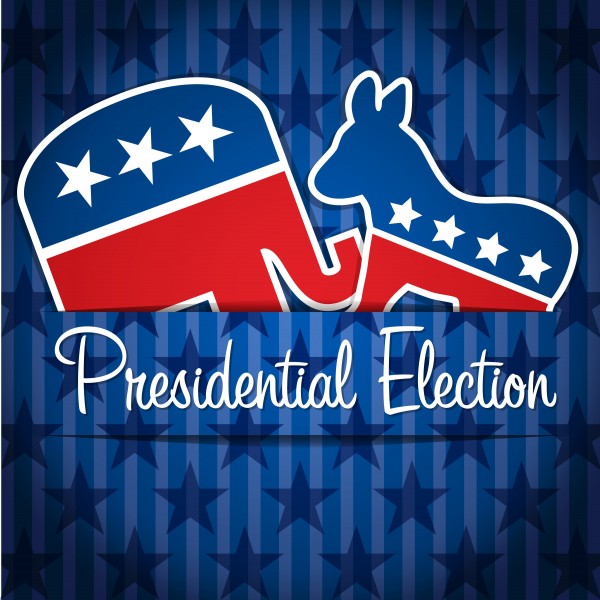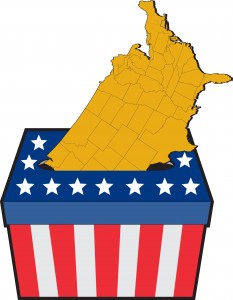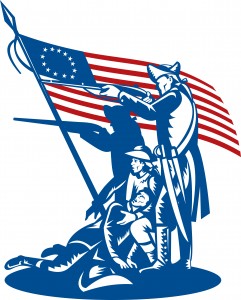Navigate This Post

2016 Presidential Campaign: Searching for a Savior
Professor Paul originally published the following article on The Blaze:
“What has been will be again, what has been done will be done again; there is nothing new under the sun.” – King Solomon, Book of Ecclesiastes.
We Americans find ourselves, yet again, playing a game repeated once every four years. As we look out at the landscape and consider the stable of potential candidates, we desperately search for a savior. Not an ecclesiastical savior. Instead, we sort through a short list and hope that we choose one that is the savior.
Along partisan lines, Democrats and Republicans attempt to choose the savior for their party. Who will be the person to lead the party to victory and save them from defeat? As a nation, we have been engaging in this endeavor in earnest since the last of the Founding Fathers retired. At which point we had to choose from a list of newcomers.

The early period in our nation’s history was much different than it is now. All thanks to Article 10 of the Bill of Rights. Back then the president had little effect on the day-to-day lives of the residents of said states.
Usurpation
Since the usurpation of state’s rights, which took place during the period of reconstruction and the continued loss of individual rights with the passage of the 16th Amendment, the American citizen has been encouraged to look to the Federal government for salvation. This naturally directs them to the titular head, the president, as a national savior.
In Federalist Paper 18, Alexander Hamilton advised that the citizens of the United States must be wary of the:
“…wantonness and lust of domination would be sufficient to be that disposition.”
Hamilton was speaking directly of the tyranny in the head of government. To that end, he advised further:
“…still it may be safely affirmed that the sense of the constituent body of the national representatives, or, in other words, the people of the several States, would control the indulgence of so extravagant an appetite.”

“The apportionment of taxes on the various descriptions of property is an act which seems to require the most exact impartiality; yet there is, perhaps, no legislative act in which greater opportunity and temptation are given to a predominant party to trample on the rules of justice. Every schilling with which they overburden the inferior number is a schilling saved to their own pockets.”
Throughout the Federalist Papers John Jay, James Madison, and Alexander Hamilton give strict warnings regarding the separation of powers. As well as the use of checks and balances in a Federal government. Hamilton refers to the people of the various States as the “natural guardians of the Constitution” in Federalist 16.
Where Did It Go Wrong
Despite the founding documents and all of the admonitions and advice we received from our predecessors, in the modern enlightened era we find ourselves in a constant search for the one person who can, by virtue of their election, save us and restore the Republic to its former glory.
Washington insiders and “party leaders” extol the virtues of compromise. We are told that we are to be flexible and practical in our decision making. The candidates offered to us tend to be more akin to Scylla and Charybdis. Rather than the omniscient political messiah we desire.
Historically, even when our chosen savior wins the election, we soon find ourselves disappointed and suffering from buyer’s remorse. The person upon whom we attached our hopes and dreams turns out to be a mediocre leader and weak-willed compromiser. Despite our fervent effort to “make a difference” through campaigning and voting, we end up with more business as usual. Like the clinically insane mental patient, we keep doing the same thing and expecting a different result.
How can it be that a nation founded on individual rights and liberties, a Representative Republic (not democracy) with a Constitution that expressly establishes a system of checks and balances and a separation of powers, has fallen into such an infinite loop of politics as usual and more of the same? Where did we go wrong and is there any way to make it right again?
Civic Duty
Though it is impossible to pinpoint an exact date in history when the ship left course and headed toward the rocks, it has been a long time coming. Benjamin Franklin saw this coming when he said:
“When the people find that they can vote themselves money, that will herald the end of the republic.”
To that same end, Alexis de Tocqueville seconded Franklin’s motion when he said this:
“The American Republic will endure until the day Congress discovers that it can bribe the public with the public’s money.”
If we honestly consider the founding principles upon which built our nation and the structure and order by which created the Republic, how can we not understand our current predicament?
The Declaration of Independence, the United States Constitution and the Bill of Rights clearly establish the fact that the power of the Federal government was expressly limited and the remaining powers reserved for the States and to the People.
It is the civic duty of the people of the United States of America to hold their representatives responsible for their actions and inactions. The tools bestowed upon us more than two hundred years ago that are necessary for liberty, still remain today.
If all those who registered to vote in the United States received political education and understood both the limited power and the duties of the President of the United States we would not need to search for a savior every four years. As a practical matter, if the stable of presidential candidates entered the race with the understanding that they would indeed be closely scrutinized and held accountable to the standards of the U.S. Constitution, we could elect any person who met the Constitutional criteria.
Conclusion
Yet here we remain, in the great enlightened era, the “age of information”, and we spend innumerable hours discussing this candidate versus that.
Who is most “electable?” Who is going to be our savior and lead us back from the brink?
I would submit to you that the savior of the United States does not and will never reside at the White House.
Alexander Hamilton knew exactly who the “natural guardians of the Constitution” were; you and I. Whether we assume our role, and accept our civic duty to police our representatives, is the question that every man and woman must answer for themselves. The other choice is more politics as usual accompanied by a desperate, and hopeless, search for a savior.
CLICK HERE to apply to be part of The Student Lounge.
Professor Paul Markel
Latest posts by Professor Paul Markel (see all)
- Tactical Masturbation: Top 3 Stupid Human Tricks - July 8th, 2024
- Blood Trail: Fearless Fiction - June 21st, 2024
- SOTG and SB Tactical Celebrate Brace Ruling - June 20th, 2024
- Shotgun Accessories: Practical and Useful - June 14th, 2024
- Tactical Rifle Tips: Transition Drills - January 5th, 2024






Once again you remind us of something that we should already be aware of.
Thank you for the gentle reminder.
Well described as usual sir. If only the masses were engaged and enlightened as they should be… TNJR
with 300+ million people split by the two dominant political ideologies, there will never be a concerted effort, nor a majority that will unite to defend the constitution. More than half the nation wants *something* from the Fed. They have been conditioned, against their own GOD given common sense, to “vote themselves gifts from the public treasury”.
There is no conservative, libertarian, democrat, green, etc, etc, etc that has yet to come close to articulating the disastrous consequences of crack-addiction like govt dependency to the voters. Reagan was “The Great Communicator” — his leadership abilities so far unequaled in the modern day — and even he couldn’t get it done.
Perhaps there will be a leader (civilian, politician, whatever) that will rise up and unite us. But from the looks of things, we can only hope for it. We surely can not count on a sufficient level of unity to avoid the inevitable. Even 9/11 didn’t piss us off enough (as a nation) to unite us in the needed response. How long before”jingoistic” saturated the media narratives?
I think we would be well advised to have a backup plan that leads us out of the ashes when our nation eventually collapses and is destroyed from within. And the pace towards that eventuality seems to be increasing.
Thank you,nich read!!!!!!!!!! You rock!!!!!!!/